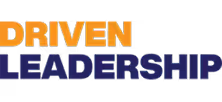Accountability Training for Managers in Los Angeles, CA


Leadership Training Accountability Training for Managers in Los Angeles, CA
Accountability is not a buzzword. For managers in Los Angeles organizations—where hybrid schedules, high turnover in tech and entertainment, and fast-moving client expectations collide—clear accountability is the difference between stalled projects and consistent delivery. This accountability training for managers is designed to turn intentions into measurable commitments, build repeatable follow-up systems, and create a culture where ownership fuels performance across creative, corporate, and public sector teams in Los Angeles, CA.
Why accountability matters for Los Angeles managers
Los Angeles workplaces face unique pressures: heavy commute times that fragment schedules, an hourly and gig economy that changes availability, and cross-functional teams spanning studios, agencies, startups, and service industries. These realities make setting clear expectations and tracking commitments more important than ever. Without structured accountability, teams see:
- Missed deadlines that ripple through client deliverables and production schedules
- Blurred responsibility on shared projects
- Low trust and recurring rework
- High manager time spent on chasing instead of coaching
This training helps managers replace reactive follow-up with proactive systems that create predictable execution across the organization.
Common accountability challenges in Los Angeles organizations
- Vague commitments in meetings and emails
- Lack of ownership when work crosses creative and technical teams
- Inconsistent follow-up rhythms for remote or field-based staff
- Poor visibility into progress across dispersed teams
- Difficulty translating organizational goals into team-level actions
What this Accountability Training for Managers covers
This program is focused on practical frameworks and leader tools that managers can apply immediately. Core elements include:
- Expectation-setting frameworks: Translate strategic objectives into clear, time-bound commitments using SMART goals and a commitment language that removes ambiguity.
- Role clarity tools: RACI and Role Impact Mapping to show who is Responsible, Accountable, Consulted, and Informed on cross-functional work.
- Commitment tracking processes: Simple trackers and meeting rhythms that create visibility without heavy administrative overhead.
- Effective follow-up techniques: Structured one-on-one check-ins, team standups, and escalation protocols that preserve relationships while ensuring delivery.
- Feedback and coaching frameworks: Use SBI (Situation-Behavior-Impact), direct compassionate conversations, and reinforcement to correct course quickly.
- Measurement and reporting: Define leading and lagging indicators tied to outcomes your organization needs—on-time delivery, quality, and customer satisfaction.
Workshop activities and experiential learning
Our approach is experiential to ensure managers can apply concepts to real work. Typical workshop components for Los Angeles teams include:
- Commitment mapping exercise: Managers bring current projects and convert vague asks into measurable commitments.
- Role-play follow-ups: Practice one-on-one and team follow-up conversations using real scenarios from the participants.
- Accountability simulation: Small-team simulations that surface common breakdowns and test fixable processes.
- Meeting redesign lab: Rework your recurring meetings into focused, outcome-driven forums with clear owner and artifact expectations.
- 90-day action plan: Each manager leaves with a prioritized plan that aligns to their team goals and includes metrics to track progress.
Workshops are built for hybrid delivery to match LA’s diverse workplace setups—fully in-person, virtual, or blended sessions.
Leader tools included
Managers receive a practical toolkit to sustain change:
- Commitment tracker templates for weekly and quarterly use
- One-on-one and team meeting agendas that enforce follow-up
- Written follow-up and escalation scripts for difficult conversations
- Role clarity and RACI templates customized to typical LA org structures
- Dashboard templates to visualize progress for leaders and stakeholders
- Short micro-learning modules for reinforcement after the workshop
Implementation and ongoing support
Successful accountability is as much about reinforcement as it is about learning. Implementation support options include:
- Diagnostic assessment: Baseline measurement of meeting effectiveness, missed commitments, and manager readiness.
- Customized curriculum: Tailor content to your industry—entertainment production, creative agencies, professional services, or tech teams in Los Angeles.
- Facilitated workshops: Onsite or virtual sessions that prioritize application to real work.
- Train-the-trainer: Equip internal facilitators to sustain training across the organization.
- Coaching and check-ins: Short coaching engagements with managers to embed new habits and troubleshoot obstacles.
- Measurement and reporting cadence: Establish KPIs and a review rhythm to prove ROI and iterate on the approach.
Organizational outcomes you can expect
When managers adopt clear accountability frameworks and consistent follow-up, organizations typically see:
- Faster execution and fewer missed deadlines
- Higher meeting efficiency and reduced time spent chasing tasks
- Improved cross-team collaboration and reduced rework
- Stronger employee engagement and retention as clarity reduces friction
- Better customer satisfaction through reliable delivery
Quantifiable improvements often include increases in on-time delivery rates, decreases in corrective work, and higher team satisfaction scores.
Sustaining accountability: manager habits that stick
To keep momentum after training, leaders should practice a few repeatable habits:
- Use a single, visible commitment tracker for your team
- Begin meetings with a quick owner check on previous commitments
- Make follow-up language specific and time-bound in every action item
- Set a standard follow-up cadence for remote or field-based contributors
- Reinforce public recognition for ownership and course corrections
Accountability is a skill and a system. With the right frameworks, tools, and reinforcement, managers in Los Angeles can turn promising plans into consistent outcomes, reduce time wasted on rework, and build a culture where ownership and performance are expected and sustained.

